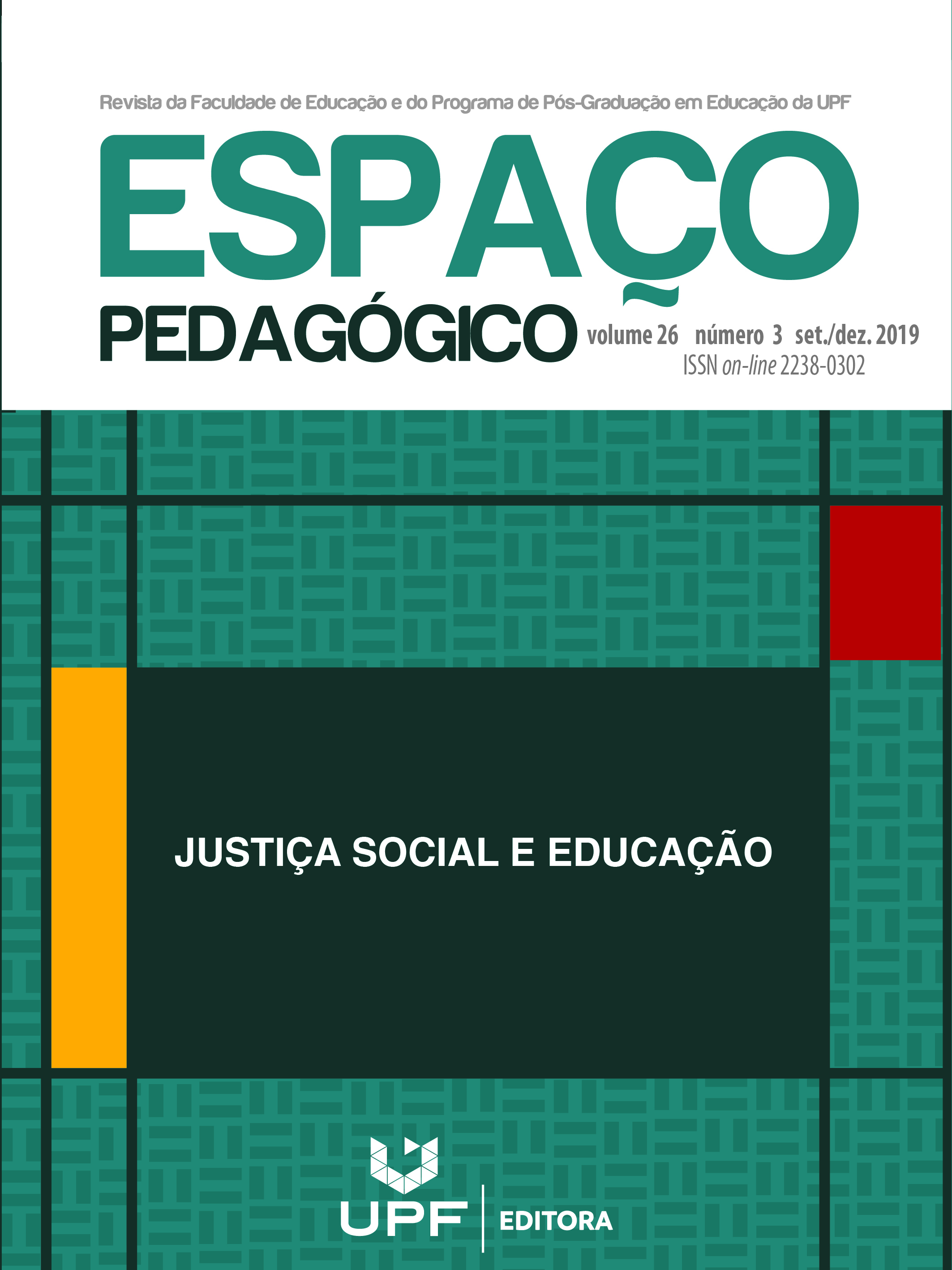Education and social justice in the perspective of the critical theory of society
DOI:
https://doi.org/10.5335/rep.v26i3.9321Keywords:
Schooling, Social justice, Critical theoryAbstract
This article discusses and analyzes, from the perspective of the critical theory of society, the relationship between education and social justice in today 's society. It is hypothesized that social justice only exists with the elimination of economic, social and cultural inequalities between individuals. In this case, social justice and capitalism are by nature incompatible. Social justice has become mere abstraction, political-juridical-ideological discourse of the more affluent classes. The standard rule legal, school and religious rituals are justified and operate from bourgeois Judeo-Christian morality: "Everybody" have equal rights. "Everybody" those included, converted, chosen, or elected either by divine manifestation, by economic power or political. The impossibility of the existence of social justice in modern and contemporary society is related to the problem of standardization and rationalization exacerbated by the process of industrial production and social reproduction; with the deficiencies and implications that this social model causes in the life of individuals, especially in relation to the pauperization of cultural formation. Social justice transcends the law and the idea of bourgeois freedom and is diametrically proportional to the achievement of basic social rights (education, health, safety, leisure and work) necessary for the well-being. The full realization of social justice depends on the destruction of the current capitalist social model. In this context, school education, as a social practice, can contribute to the rescue and dissemination of principles and values aimed at achieving social justice.



